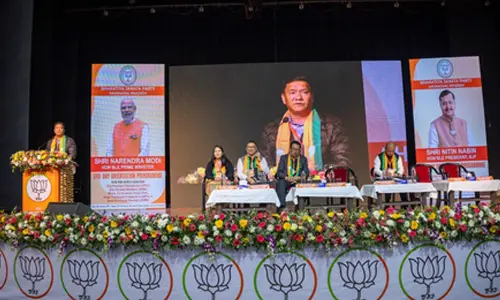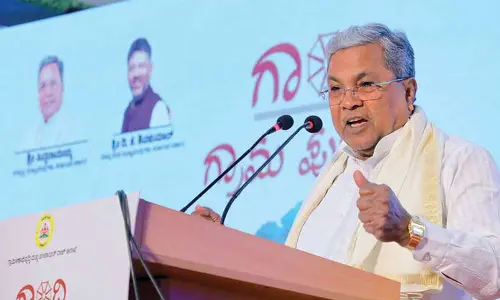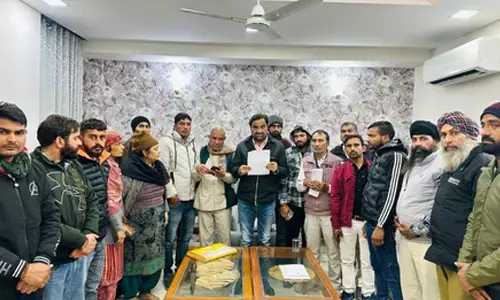Positive disruption for organisational transformation

All change is for good However, if change is not backed with precision knowledge, clarity of consequences and objectivity, it can drive negative outcomes Change is the only constant in an organisations time line Those who dont understand change will resist it Those who do, will welcome it and even contribute to it As they understand, it cant be obstructed for too long
All change is for good. However, if change is not backed with precision knowledge, clarity of consequences and objectivity, it can drive negative outcomes. Change is the only constant in an organisation’s time line. Those who don’t understand ‘change’ will resist it. Those who do, will welcome it and even contribute to it. As they understand, it can’t be obstructed for too long.
All change is the outcome of an initiative, decision and an action. Without these triggers, no change is possible. Imagine what is leadership without these critical triggers. Leadership is about initiatives, decisions and actions. Effective leadership is not just about these triggers but the thoughtfulness, planning, strategy and vision which backs these triggers.
In the contemporary world and in the newly emerging global economy, time is the most valued asset despite being the fastest depreciating one. Organisations led by effective leaders can’t wait for evolutionary changes to shape their business environment and outcomes. They need to trigger the ‘change’ strategically in quantum leaps, that can lead to disruption. If a disruption can lead to positive, quantitative and qualitative outcomes, it can effect a positive transformation.
Some massive positive disruptions in the recent times have created not just billions of wealth to the initiators but resulted in brand new products, millions of new customers and uncharted markets.Organisations can no more afford ‘wait & watch’ policy or go about ‘routine business’ without having to be actively observing technology and innovation triggered impact on their age-old business, revenue and process models.
They can’t even rely on continuity of their product and service delivery or even their market relevance for too long. Such are the changes underway. There are no guarantees and hedging possibilities for business continuity. It’s all fluid out there. It’s time for organisational leaders to be conscious of fleeting opportunities and threats to the current and future businesses.
Broadly, I will classify all businesses small, medium and large into active and passive categories. The active businesses are increasingly ‘awake’ and ‘conscious’ of not just their internal but their external ecosystem. They are refreshing their top line of leadership to be extremely open minded, young and agile to understand, analyse and act with the pace of the transformation that's underway.
The characteristics of an 'active organisation' are many and multi-dimensional. However, some key features of these organisations are to be ‘listening and feeling, ‘lean and agile’, 'young and aggressive', 'open minded and experimental', 'flexible and accommodative', 'revenue and technology focused' and 'conversational at the board & client focused'. These characteristics are supporting 'active organisations' to take massive initiatives to transform their businesses to not just ensure continuity but to expand their markets, delight their customers and multiply their margins.
In short, ‘active organisations’ are equipped to make huge and necessary transformation happen, through well planned and executed disruption. We are not talking of start-ups here, it’s the regular, established continuing industry players.
“I did it, as I didn't know that I couldn't” is a powerful phrase to highlight large scale lapses and failure of industry players and leaders not driving disruption for transformation, but the small, young and fresh start-ups.
I strongly believe 'knowledge' and especially when rigid, can be a huge obstacle for organisations and their leaders to not expand their minds. The lack of 'unlearning' and rigidness to 're-learn' can be disastrous for organisational transformation.
No wonder, those with no 'knowledge constraints', the brand new start-ups are leading the innovation and disruption using new technologies. They are able to think alternatively using new technologies to provide alternate solutions and efficient delivery than those in the same business for decades. It needs a serious reflection, as why and how the large and established industry players are not leading this transformation.
All those organisations which are just 'me-toos' today and are way behind the start line from the new crop of successful start-ups. They see right in front of their eyes, brand new players eating into their markets and customer base. Some of these businesses are reacting with partial and reluctant transformation, while some are on their way out.
These are ‘passive organisations'. They are too characterised by many flaws while the critical few are, ‘close minded and rigid', 'myopic and inward focus', 'routine process and no innovation' 'old leadership and less agility' and 'lack revenue, customer, market and technology orientation'.
Globally, the economy and the industry are at the ascent of a huge transformation. This ascent will peak in less than a decade and it will essentially bring about huge wave of disruption in almost all the businesses.Those who can't ride along and catch this wave can lose a generational opportunity.














